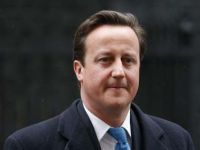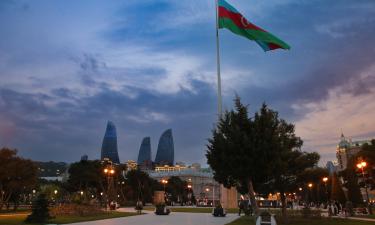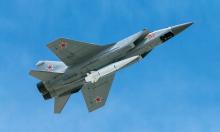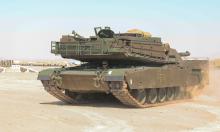Cameron in Blunderland
"The refuge of the morally, intellectually, artistically and economically bankrupt is war."(Martin H.Fischer, 1879-1962)

It has not been an auspicious couple of weeks for UK Prime Minister David Cameron.
His Cabinet colleagues, largely a bunch of millionaires, have accused the unemployed of being work-shy and a burden on the taxpayers - never mind that businesses are closing in near industrial numbers and that often hundreds, if not thousands, apply for one job. Additionally, according to the Literacy Trust: " One in six people in the UK struggle with literacy. This means their literacy is below the level expected of an eleven year old ... Men and women with poor literacy are least likely to be in full-time employment at the age of thirty."
by Felicity Arbuthnot
A junior Health Minister has accused the poor of being fat because, she has decided, they eat the wrong things.
The latter of course, implies that the overweight poor will be a further burden on Britain's National Health Service, being more likely to develop chronic conditions. It seems this health fascism exempts government Ministers and politicians such as the Minister for Communities and Local Government, Eric Pickles, who must flatten the tyres and springs of his Ministerial limousine, along with other political rotunds, politicians who of course, live entirely at the taxpayers expense, from large salaries, with all financial outputs covered including health care.
David Cameron himself stated that without the health help he had received, often twenty-four hours a day, for his little son Ivan, suffering a chronic condition which subsequently proved fatal, his family would have been unable to cope. Now, under his government, the Health Service too is under government fire - slash and burn style. Cuts in welfare include attempting to force the very disabled, even potentially terminally ill back to work. Some have committed suicide.
Public anger and resentment is palpably mounting against pretty well all policies in a government seen as completely blind to the reality in Britain's villages, towns and cities.
The government message, of course, is fiscal belt tightening, "getting the economy back on track."
Then the Prime Minister cancelled a long planned address in Europe on Britain and the EU (another mess) leapt on a plane for Mali, a geographical stone's throw away from the ruins of his last African foray, Libya, and announced support for France's reckless insurgency, in one of the few countries the British have not invaded, plundered or colonised. So much for fiscal probity.
The opposition Labour Party's Defence spokesman, Jim Murphy, commented on what rapidly became Operation Creep: "The UK commitment to Mali has grown from lending the French two transport aircraft, to the deployment of perhaps hundreds of troops to the region." Most will be there, Cameron has assured, on a "training mission."
In what should have been a mega reality check for anyone but the Prime Minister, former Labour Cabinet Minister, Frank Dobson, pointed out that, "The American catastrophe in Vietnam started off with a deployment of troops in a training capacity."
From there, he went to meddle in Algiers, popped in on the remains of Libya in a sixteen vehicle armed and armored motorcade, where he addressed a police training college (in English) and assured them that, "In building a new Libya, you will have no greater friend than the United Kingdom. We will stand with you every step of the way." That should send a chill down spines.
Cameron's decision to fly to the Maghreb, wrote one commentator, "was a Blair-style statement that Britain intends to stay involved." Indeed, Cameron's references to a 'generational struggle' make him sound remarkably similar to Tony Blair after 9/11.
"I believe we are in the midst of a long struggle against murderous terrorists and a poisonous ideology that supports them," he told the World Economic Forum in Davos on returning.
Whilst: "We've successfully put pressure on al-Qaida in Afghanistan and Pakistan, so al-Qaida franchises have been growing for years in Yemen, in Somalia and across parts of Africa" he warned. His predecessor, "peace envoy" Tony Blair, wanted by lawyers and others worldwide for his Iraq lies, cheered on Britain in Mali from the television studios.
It now transpires that David Cameron relies on Blair, who may yet be headed for the International Criminal Court in The Hague, as, seemingly some sort of mentor, from whom, it is reported, he has been taking personal advice.The Chancellor, George Osborne, is reported as referring to Blair as "the master."
Cameron is quoted as being "very admiring of Blair, whom he regards as a nice person and has conviction." With judgment like that, there may be those who feel he would be dangerous in charge of a broom, yet alone a country.
Iraq's ruins, widows, orphans, three million dead and five million displaced are testimony to Blair's "conviction" and niceness, in this tenth anniversary of the invasion year and twenty-second of the embargo, which Blair endorsed, helped sustain its strangulation, colluded with - with UK aircraft aiding the illegal US bombings, during his term in office, 1997-2007.
On Monday (the 4th of February), David Cameron hosted Afghanistan's President, Hamid Karzai, and President Asif Ali Zardari of Pakistan at a dinner at the Prime Ministerial country home, Chequers "as part of his ongoing efforts to help to strengthen Afghanistan-Pakistan relations and promote regional peace and stability," according to The Independent.
It would have been interesting to have been a fly on the wall as the canapés did the rounds. Ahead of this much touted mini summit, President Karzai gave lengthy interviews to the Guardian and ITN. It was, to put it mildly, a bit of a broadside:
"In 2002 through 2006, Afghanistan had a lot better security. When we had our own presence there, with very little foreign troops, schools were open in Helmand and life was more secure," said the President.
Moreover, while he appreciated "the sacrifices and "contributions" of the British forces, " ... we also would like our allies in the west to recognise the immense sacrifices of the Afghan people in the last ten years, the immense loss of life and the suffering that the Afghan people put up with ..."
Acknowledging corruption within the Afghan government and its agencies, indeed the allegations leveled at his own family and connections are a litany, he stated that "in comparison to the corruption coming through the international donor contracts, and the way the money was spent (it was) really insignificant." He gave examples.
Asked about the attacks by Afghan troops on coalition forces, he said it "pained" his Administration as a "serious breach of hospitality" for which Afghanistan is known, but " ...there has to be a lot more cultural sensitivity by our allies when they send troops to Afghanistan. Plus much more."
Given night raids, wholesale destruction of lives, livelihoods, homes and terrorism by drones, his restraint was commendable, the more so since he and colleagues survived a US "friendly fire" missile attack in 2001, suffering serious injuries, also involving damage to facial nerves, still sometimes noticeable.
Asked what stood in the way of progress in Afghanistan, "The risk is continuation of foreign interference ..." Further, "The exit of foreign forces will not bring more violence ... but a serious, strong, good reduction in violence will occur." Earlier he had said, "On our own, as Afghans, we will be good. It's the external factors that will determine the extent of progress and stability or the lack of it."
On the planned departure of western troops from Afghanistan, one comment was that perhaps the reason was " ...that they have felt that there was no fight in Afghanistan from the very first day, that terrorism was not in Afghanistan to be found, that they had to go to the (Taliban's) sanctuaries long time back, that they didn't do that and since they cannot do that even today there is no point for them to stay in Afghanistan, so they would like to leave ..." Ouch.
(It should be said that in the mid nineties Karzai not only worked with the Taliban, but they asked him to be their Ambassador to the United Narions.)
In a long interview, there are certainly some enlightening lines. US and UK "progress" and conquest of "hearts and minds" over twelve years in Afghanistan seems to lie buried in that "graveyard of empires."
The US is committed to "an enduring presence" in Afghanistan (it's the minerals, stupid). So far, Hamid Karzai is talking a conciliatory line. They would perhaps be confined to the odd base, but in no towns or villages. Mr Karzai seems like a man who is capable of changing his mind.
It is to be hoped nothing went wrong with the menu of that bridge building Prime Ministerial dinner. Britain has had another major food scandal, with horsemeat found in beefburgers - and pork in halal meat. Hope none found its way to Chequers to round off Cameron's latest accident prone couple of weeks.
Prepared for publication by:
Lisa Karpova
Pravda.Ru
Subscribe to Pravda.Ru Telegram channel, Facebook, RSS!




